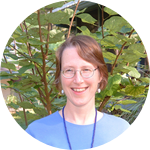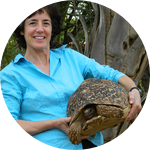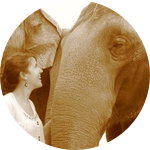About This Project
Have zoos inspired their 180 million annual visitors to get involved and make choices everyday to conserve wildlife? Zoos have the opportunity to be conservation leaders. My goal is to analyze zoos' conservation projects, their partnerships, and their methods for engaging visitors to help improve their impact. No one has yet studied zoos' conservation collaborations. My work will identify new dimensions of zoo conservation and new opportunities for helping us all to join in.
Ask the Scientists
Join The DiscussionWhat is the context of this research?
Businesses know the importance of organizational collaborations to enhance their success. Strategic partnerships can reach larger audiences, increase support for their work, and even boost product sales.
Applying the business knowledge of strategic collaboration to conservation could help this important field gain new traction. Collaborative partnerships could enhance current efforts by combining audiences. Knowing that environmental threats are so urgent, this approach could potentially help organizations all achieve their shared conservation goals more easily and quickly.
We hope to study whether this collaborative approach to conservation currently exists between zoos. Are they successfully creating partnerships and consequently bringing the public together to join conservation?
What is the significance of this project?
Research to date has primarily focused on zoo exhibits, messaging, and educational impacts on individual conservation behaviors. This is a novel research study to examine organizations' conservation projects and whether their collaboration encourages collective action for the environment.
Studying multiple zoos will help us observe the spread of collective conservation action from organizations to their audiences. We will use social network analysis tools that have not yet been applied to zoos. This study will identify the effects of zoos' conservation partnerships on the outcomes of their projects and reveal their methods for engaging visitors in conservation, to answer the ambitious question of zoos' ability to bring us together for widespread conservation.
What are the goals of the project?
The first goal is to take a snapshot of zoos’ conservation collaborations. We will sample all 230 institutions in the Association of Zoos and Aquariums. Mapping the network of partnerships and identifying the dominant species and activities in the projects will reveal the structure of their collective action for conservation.
These findings represent one lens for viewing the role of zoos. Observing onsite activities and interviewing zoo leaders will provide a second viewpoint, in-depth context, and rich results. We will sample 6-10 zoos in Florida, because their diversity mirrors the distribution in the AZA and they focus on conservation.
We will share our findings with the AZA zoos and with conservationists in many fields who are also working to bring us together for action.
Budget
My scholarship at the University of Florida covers the first step of analyzing zoos' conservation projects and partnerships remotely using documents and websites.
The funds raised here will enable the next step of onsite data collection at zoos. We must verify our initial findings and dive deeper into zoo conservation at several institutions. The head researcher Lily Maynard and 2 undergraduate research assistants will travel to a minimum of 6 zoos in Florida to sample institutions with diverse sizes, budgets, and most importantly, conservation programs. The more funds we raise, the more zoos we will include!
We need support for our travel, lodging, and food during this data collection period. Additionally, support for vital equipment to complete this study includes a pre-owned laptop computer with the necessary data and social network analysis software, as well as supplies to record observations of zoo exhibits and audiences, and interviews of conservation program leaders.
Endorsed by
Meet the Team
Lily Maynard
I have a lifelong commitment to wildlife conservation and engaging with people around the environment.
I grew up visiting the Cincinnati Zoo where I learned to find awe in all species. More recently, I have been a zoo educator and program evaluator. I conducted biological research in laboratories at Smith College and ecological studies in communities in Belize, South Africa, Botswana, Zambia, and Kenya. Yet, I shifted my ecologically focused perspective when I realized humans are the only ones who do conservation.
As a PhD student at the University of Florida, I am exploring the field of the human dimensions of conservation. I study how collaboration can enhance conservation. My master's degree focused on stakeholder collaboration in Kenyan communities, and for my doctoral degree I'm looking to zoos to examine whether organizational partnerships can increase conservation impacts. I believe in zoos' conservation potential, but I think that zoos' influence on large conservation objectives needs to be documented and further realized.
Project Backers
- 77Backers
- 178%Funded
- $4,450Total Donations
- $57.79Average Donation


